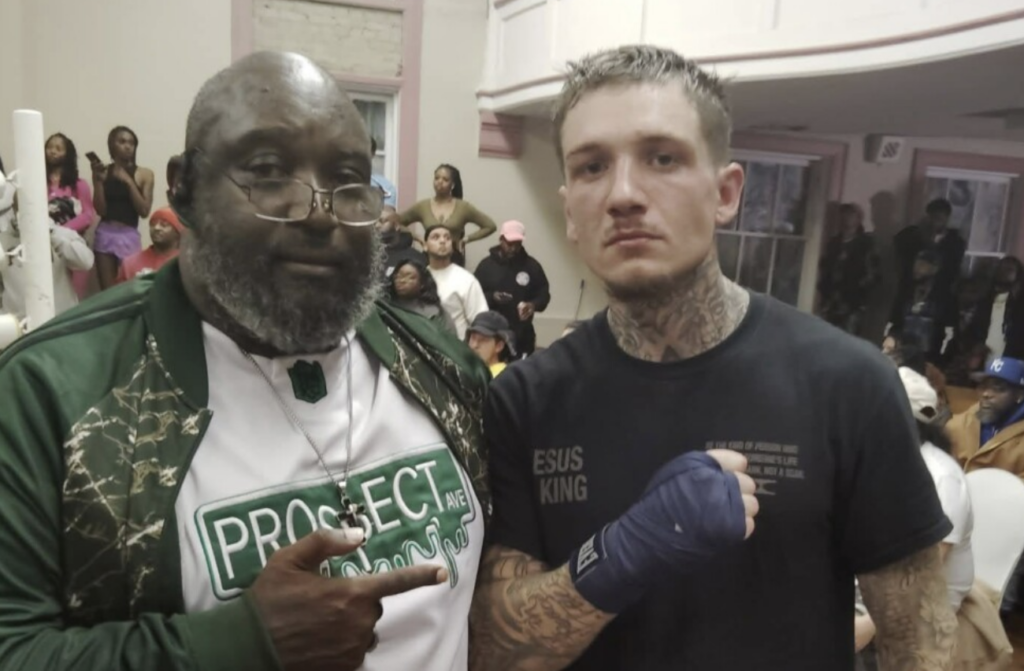Scholar Wit Attitude KU professor Iain Ellis’ new book schools us on subversive rock humorists
For Iain Ellis, Ph.D., the best show of 2008 was the Slits in Lawrence.
“It was one of those bands that I didn’t see back in the day, and they came to the Replay on, I think it was St. Patrick’s Day, so the bar was just hopping with drunks,” he remembers.
“It was just a really brilliant, different kind of experience, you know, ’cause how many shows are so macho, have that kinda male vibe? This had such an interesting, sisterly punk vibe … an aggressive, female, sisterly punk experience. And Ari Up, the lead singer of the Slits, was just total charisma.”
Considering Professor Ellis’ pedigree, it’s not surprising that the blue-eyed, baldheaded, 45-year-old Brit would have freaked out over a local appearance of the influential all-girl (initially, at least) U.K. punk band.
In fact, Ellis has his doctorate in punk. The title of his dissertation, which he finished in 1993 at Ohio’s Bowling Green State University’s American Culture Studies Program, is “U/Dys/Topian Significations: The Dissemination of the Punk Aesthetic Across 1980s American Culture.”
If that title doesn’t make you want to rush to the nearest research library, Ellis has a new publication that should pique your interest, provided that you’re at least marginally curious about rock history.
Out this past December 1 via Soft Skull Press — a culturally savvy, little publishing house that has put out books of poetry, novels, and a book of Bill Hicks‘ routines and diaries — Ellis’ book, Rebels Wit Attitude: Subversive Rock Humorists, is an ass-kicking and comprehensive survey of rebellious humor in pop music, from the 1950s to now.
Little Richard, Screamin’ Jay Hawkins, Bob Dylan, the Velvet Underground (the author’s pick for the most influential rock band ever), the Modern Lovers, Alice Cooper, Ice-T, Madonna, Pavement and Beck are all included, along with many, many others.
Ellis teaches English courses and a class on youth rebellion at KU, but despite his roots in academia, Rebels is entirely accessible to the casual reader. In fact, it’s excellent material for the uninitiated — the book not only covers its subject from every angle but also is a great primer of the past 50 years of American music. For instance, if you, like me, have always meant to actually learn something about the lives and works of artists such as Chuck Berry or Jerry Lee Lewis or the Ramones, Ellis’ book is a fantastic place to start.
Fortunately, Rebels, unlike many books of rock criticism, is devoid of precious personal anecdotes — that is, the image of the author as a young man, secretly listening to vinyl records on headphones when he’s supposed to be in bed, or sneaking in to see the Clash at age 12 (because he was cooler then than you are now) and so on. He certainly could have done that, considering how he came of age in East London in the late ’70s and early ’80s, but there’s none of that self-congratulatory rubbish here. Like the earnest, exploratory columns that Ellis has been writing for the international music site PopMatters.com since 2004, this book is serious — more or less.
“I wanted to analyze,” Ellis says. “I wanted to analyze that which, to me, is the most important ingredient in rock rebellion, something that’s never been written about, and that’s humor.”
He writes about how Chuck Berry — a subverter in the tradition of Walt Whitman and Mark Twain, according to Ellis — sneaked themes of black empowerment into his songs right underneath white America’s nose, at the same time calling for youth dissent through the rebellious, primal power of rock and roll.
Tackling a subject 40 years after Berry’s heyday, Ellis writes of Nirvana: “Their lyrics plumb the dark basements of black humor and sarcasm; Kurt Cobain‘s disinterested vocal exudes dismissive mockery; the band’s performance style is one of grotesque provocative assault; their bare-bones punk-metal riffs parody artistic excellence; their shock-image album covers ridicule art and society’s concepts of beauty and challenge mainstream culture’s tolerance of the unacceptable; and their clothes, ripped and ragged, present mocking mirrors of a desperate and alienated youth to a middle-class adult mainstream that builds high fences to keep such undesirables beyond its purview.”
Prof knows his rock.
Unfortunately, to keep Rebels at a reasonable length and to endow it with a cohesive, American-oriented theme, Ellis had to keep discussion of his native country’s rock rebels — Morrissey, Johnny Rotten, Mike Skinner and the like — out of the picture. Look for a book on Britain’s musical subversive types soon.
And keep an eye out for a sprightly Englishman pogoing at local rock shows. Give him room in the circle pit. Dude’s got a doctorate in this noise.




